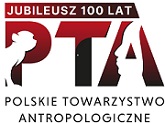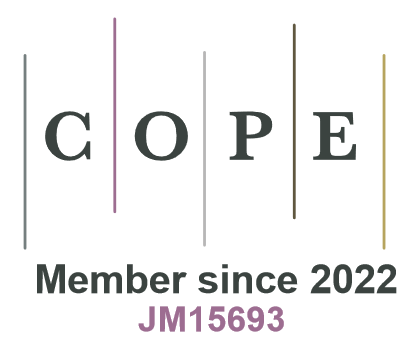Twenty four year time trends in fats and cholesterol intake by adolescents. Warsaw Adolescents Study
DOI:
https://doi.org/10.1515/anre-2015-0013Keywords:
adolescents, fatty acids, fat intake, BMI, trendsAbstract
The objective of this study was to determine time trends ( 1982–2006) in total fat intake and changes in fatty acid structure intake in adolescents from Warsaw in view of increasing prevalence of obesity. Data come from four successive surveys randomly selected samples of adolescents (aged 11–15 years old), from Warsaw region. In total 9747 pupils have been examined, with response rate varying from 55% to 87% depending on year. Surveys were done always in the spring season of the year. Food intake was assessed by using 24 hours recall method of consumption by the pupils all products, including enriched, dishes and beverages as well as diet supplements, in the last 24 hours preceding the examination. The content of energy and nutrients was calculated by means of own computer softwares (DIET 2 and 4), taking into account successive revisions of the tables of food composition and nutritional values, as well as current Polish DRI. A significant decreasing trend was found in intake of total fat, of saturated fatty acids (SFA) and cholesterol. The percentage of energy from total fat, also decreased both in boys (to 35,1%) and girls (to 33,7%), what failed to reach the desired level below 30% of energy from fat which is recommended. Also significant decrease of SFA consumption was not satisfactory enough to approach the values <10% of energy recommended as was from 13% to 15%. Decreasing trends in fat intake was not in accordance with the trend in obesity prevalence in the adolescents as average BMI is going up. To stabilize the health-oriented changes especially in the diets of adolescents, further activity is desired from professionals working with prevention of adolescents obesity.
Downloads
References
Alexy U, Sichert-Hellert W, Kersting M. 2002. Fifteen- year time trends in energy and macronutrient intake in German children and adolescents: results of the DONALD study, British J Nutr 87:595–604.
View in Google Scholar
Bray GA and Popkin BM. 1998. Dietary fat intake does affect obesity! Am J Cl Nutr 68:1157–73.
View in Google Scholar
Charzewska J, Chabros E, Wajszczyk B, Chwojnowska Z, Kraszewska E. 2009. Underweight, overweight, and obesity trends in Warsaw adolescents during the 35 years period, 1971–2006. Eur J Epidem 24(suppl 1):31.
View in Google Scholar
Charzewska J, Chabros E. 2010. Dlaczego młodzieży zagraża otyłość? Roczniki Warszawskiej Szkoły Zdrowia X:25–36. (in Polish).
View in Google Scholar
Cole TJ, Bellizi MC, Flegal KM, Dietz H. 2000. Establishing a standard definition for child overweight and obesity worldwide; international survey, Br Med J 320(6):1240–43.
View in Google Scholar
Gibson RS. 2005. Principles of Nutritional Assessment. Oxford: Oxford Univ Press:41–4.
View in Google Scholar
Guillaume M, Lapidus L, Lambert A. 1998. Obesity and nutrition in children. The Belgian Luxembourg Child Study IV, Europ J Clin Nutr 52:323–28.
View in Google Scholar
Jequier E. 2001. Is Fat Intake a Risk Factor for Fat Gain in Children? J Clin Endocrinol Metab 86:980–83.
View in Google Scholar
Kuller LH. 1997. Dietary fat and chronic diseases: epidemiologic overview, J Am Diet Assoc 97 (suppl):S9–S15.
View in Google Scholar
Kunachowicz H, Nadolna I, Przygoda B, Iwanow K. 2005. Tabele wartości odżywczej żywności. Warszawa: PZWL. (in Polish).
View in Google Scholar
Magarey AM, Daniels LA, Boulton TJC, Cockington RA. 2001. Does fat intake predict adiposity in healthy children and adolescents aged 2–15 y? A longitudinal analysis. Eur J Clin Nutr 55:471–481.
View in Google Scholar
Manual on Methodology for Food Consumption Studies. 1988, In: Cameron ME, WA van Staveren, editors. Oxford: Oxford Medical Publications.
View in Google Scholar
Mozaffarian D, Micha R, Wallace S. 2010. Effects on coronary heart disease of increasing polyunsaturated fat in place of saturated fat: a systematic review and meta-analysis of randomized controlled trials, PLoS Medicine 7(3):1–10.
View in Google Scholar
Polish Dietary Reference Intake – Normy żywienia człowieka. Podstawy prewencji otyłości 2008, In: Jarosz M, Bułhak-Jachymczyk B, editors. Warszawa: PZWL (in Polish).
View in Google Scholar
Remer T, Dimitriou T, Kersting M. 2002. Does FAT intake explain fitness in health children? Eur J Clin Nutr 56:1046–47.
View in Google Scholar
Szponar L, Wolnicka K, Rychlik E. 1982 i 2000. Album fotografii produktów i potraw o zróżnicowanej wielkości porcji: Prace IŻŻ, Warszawa (in Polish).
View in Google Scholar
Troiano RP, Briefel RR, Caroll MD, Bialostosky K. 2000. Energy and fat intakes of children and adolescents in the United States: data from the National Health and Nutrition Examination Surveys, Am J Clin Nutr 72(suppl):1343S–53S.
View in Google Scholar
Weiner JS, Lourie JA. 1969. Human Biology, A Guide to Field Methods, IBP Handbook no 9, Oxford and Edinburgh: Blackwell Scientific Publications.
View in Google Scholar
WHO, Physical Status. 1995. The Use and Interpretation of Anthropometry, Geneva: Tech. Report Series 854.
View in Google Scholar
Willet WC. 1998. Is dietary fat a major determinant of body fat? Am J Clin Nutr 67(suppl):556S–562S.
View in Google Scholar
Downloads
Published
How to Cite
Issue
Section
License

This work is licensed under a Creative Commons Attribution-NonCommercial-NoDerivatives 4.0 International License.








